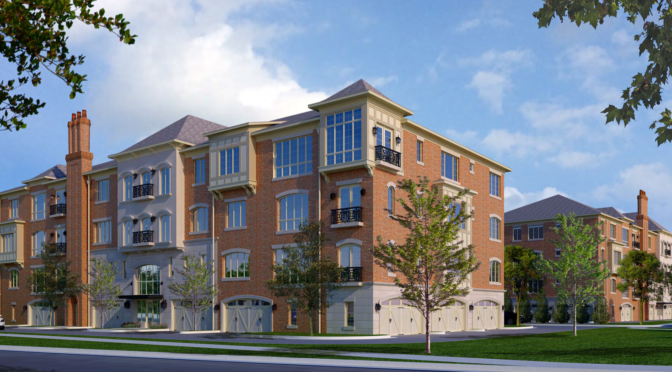ROCHESTER — Rochester’s oldest business, the Rochester Elevator Co., could soon bid farewell to its home at the corner of University and Water streets in downtown Rochester.
Developers Joe Salome and Tony Ferlito are in the process of submitting a request to the city’s Planning Commission to build a 42-unit condominium complex called the Residences at Water Street on the site of the 136-year-old building at 412 Water St. The proposed development would have one- to three-bedroom units, between 1,700 and 2,100 square feet in size, ranging in price from the high $400,000s to $1 million.
“The owners of the elevator had expressed an interest in selling the property … and we feel it is a good spot … so that is how it all came about,” Salome said of the project. “We are trying to get a submittal in right now, to go into a formal Planning Commission meeting. That is the next step.”
The project, which has been two years in the making, will be sought under the city’s special use designation and will therefore require the developer to provide some benefit to the city, if approved.
Deputy City Manager Nik Banda said the developers have agreed to pay to have the historic elevator building moved to a new location or disassembled — to be reassembled elsewhere. If the building is disassembled, Banda said, the developers would also cover some of the costs associated with reassembling the building, which would have to be stored until the city could fund the rest of the reconstruction funds. Salome said the developers also want to put a pocket park at Water Street and University that recognizes the city’s past in some way, possibly with a historic marker.
The Rochester Elevator, Salome said, is a historic building to all who have lived and worked around Rochester.
“I have another property in the city, so I recognize the historic value of buildings like this,” he said.
Salome, president of Sterling Heights-based Grandview Construction Inc., and Ferlito, president of Detroit-based The Ferlito Group, already own a development at 251 Diversion St. in downtown Rochester.
The elevator building could potentially be moved to a municipal parking lot or another location within the city, or be disassembled and then rebuilt in Rochester Municipal Park.
“If you could keep it somewhere in the same area, it would still feel iconic,” he explained. “The developer said they would pay for the deconstruction, or if it was a similar cost, to pay to slide it across the street. It would then be up to the city to figure out what to do with it and then what level we have to rebuild it to,” he said.
The Rochester Elevator Co. Grain Elevator was built by Charles K. Griggs in 1880. The building consists of one building constructed in 1880 and two additions, which were added to the main building in 1909, according to the city’s Historic District Study Committee. The establishment is recognized by the Historical Society of Michigan and was added in 2010 to the National Register of Historic Places in Michigan.
Rochester-Avon Historical Society President Brian Dunphy said the society has had a clear role in discussions about the future of the Rochester Elevator for many years and wants to continue to be a part of the process moving forward.
“I think that the community expects it to remain a visible part of the city cityscape … so there is some creative planning that needs to take place to make sure that there is an appropriate place for the elevator to end up. The Historical Society will fully support those efforts,” he said.
Dunphy said the society strongly feels that the historic building should remain in downtown Rochester, as close to its current location as possible, and that it could eventually make a nice historical museum or even a downtown welcoming center.
The development is currently in the conceptual phase, and the developers have not appeared before the city for any formal approvals.
“It’s a development opportunity — it doesn’t mean it’s going to happen, and it doesn’t mean it’s not going to happen,” Banda explained.
The condo development, Salome said, would have a completed estimated value of around $35 million. If the new development is approved by the city, Salome hopes to start construction sometime in the spring or summer of 2017.

